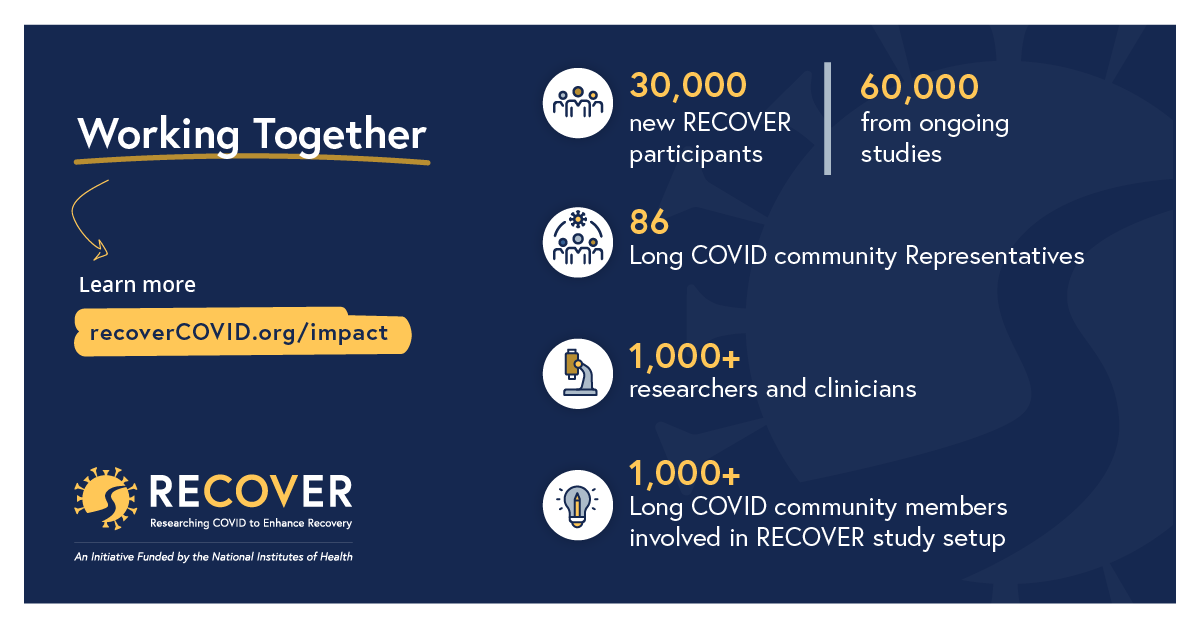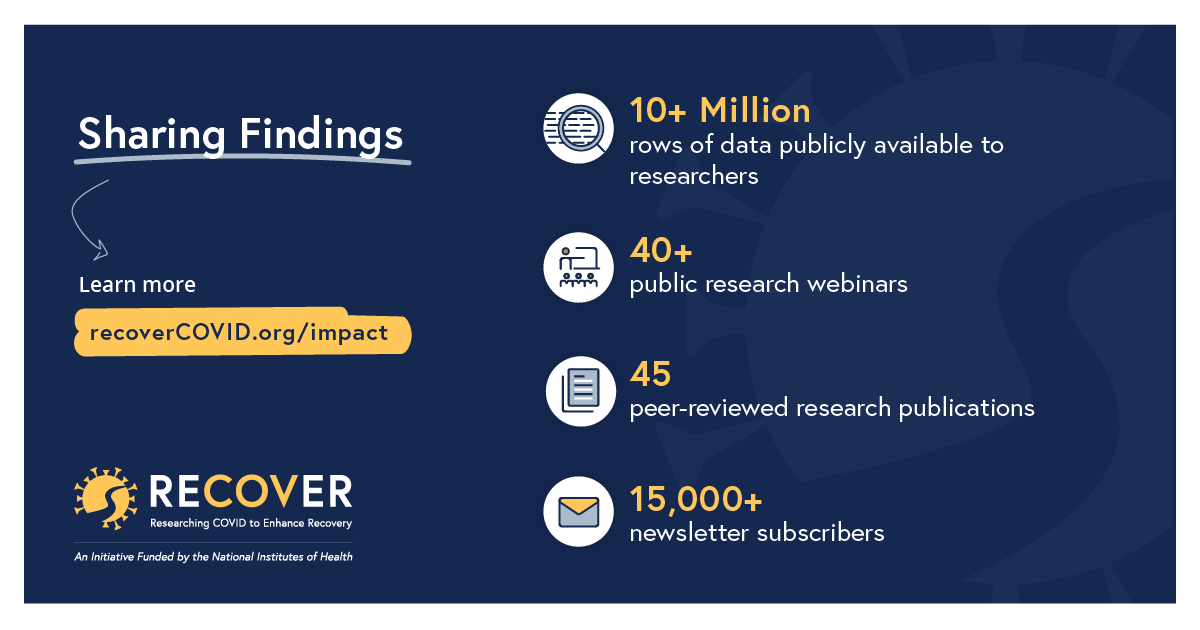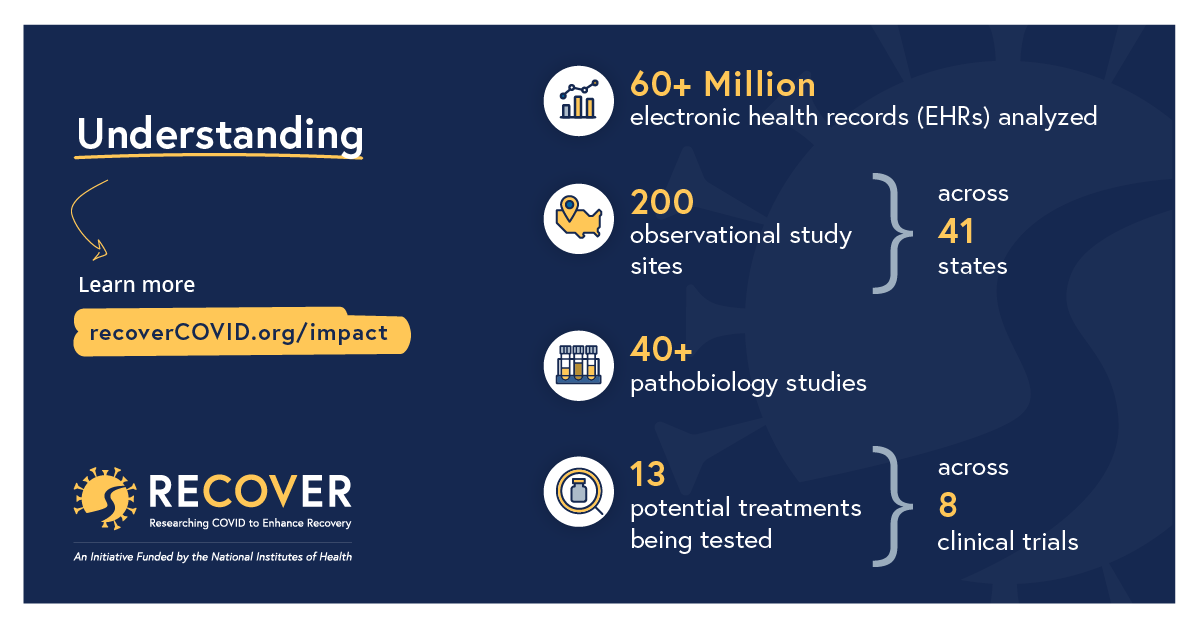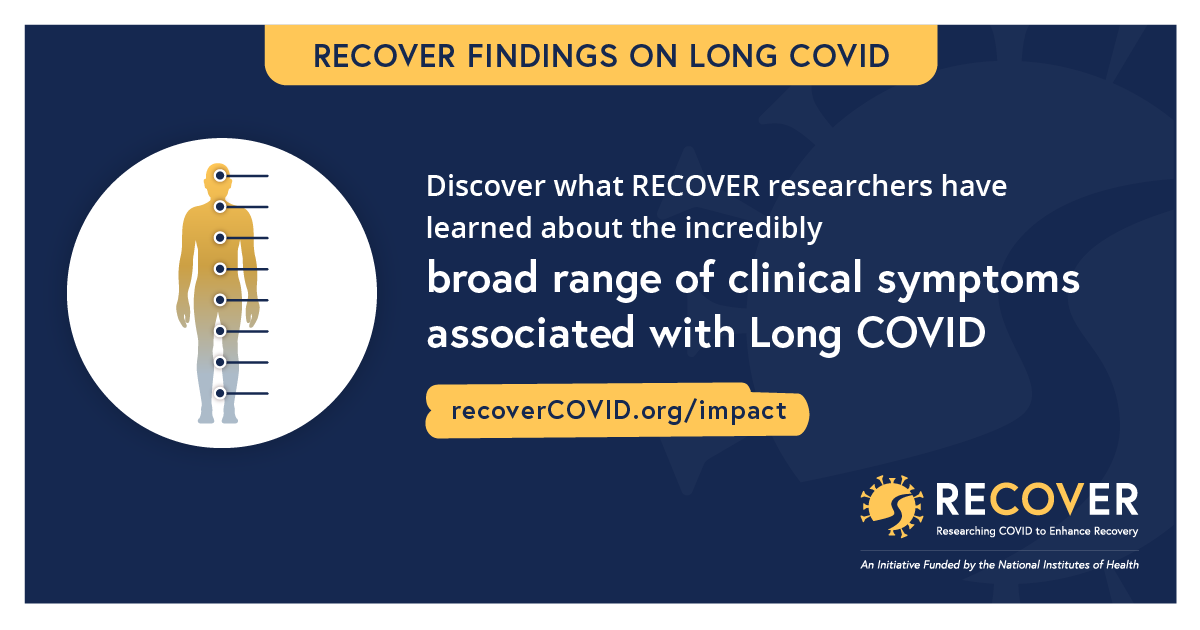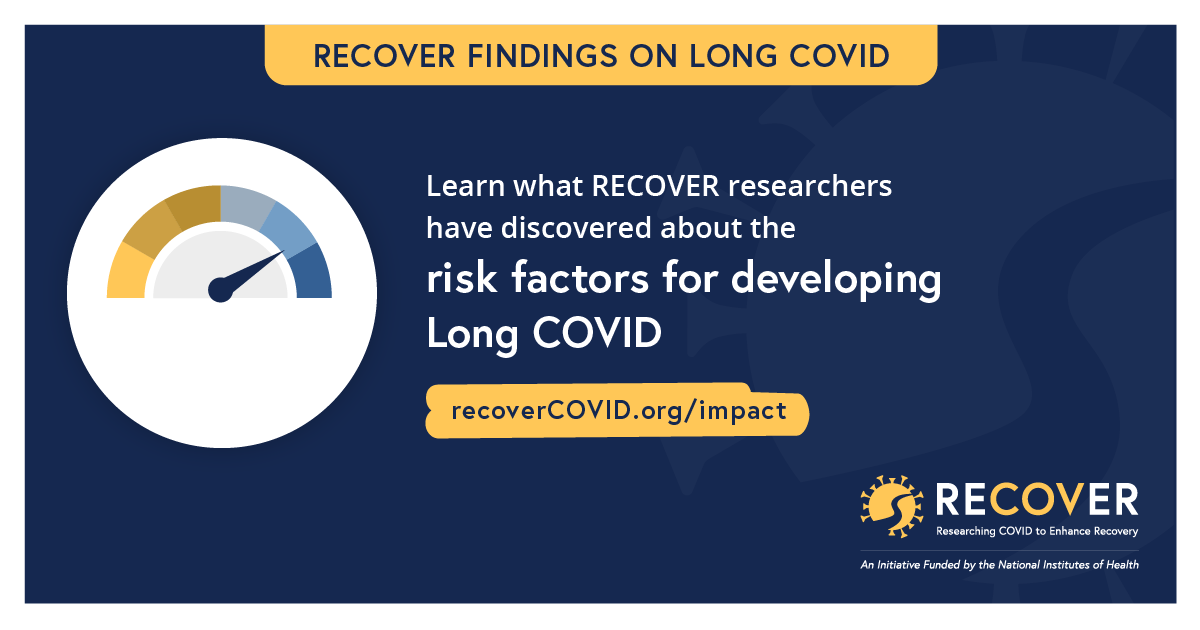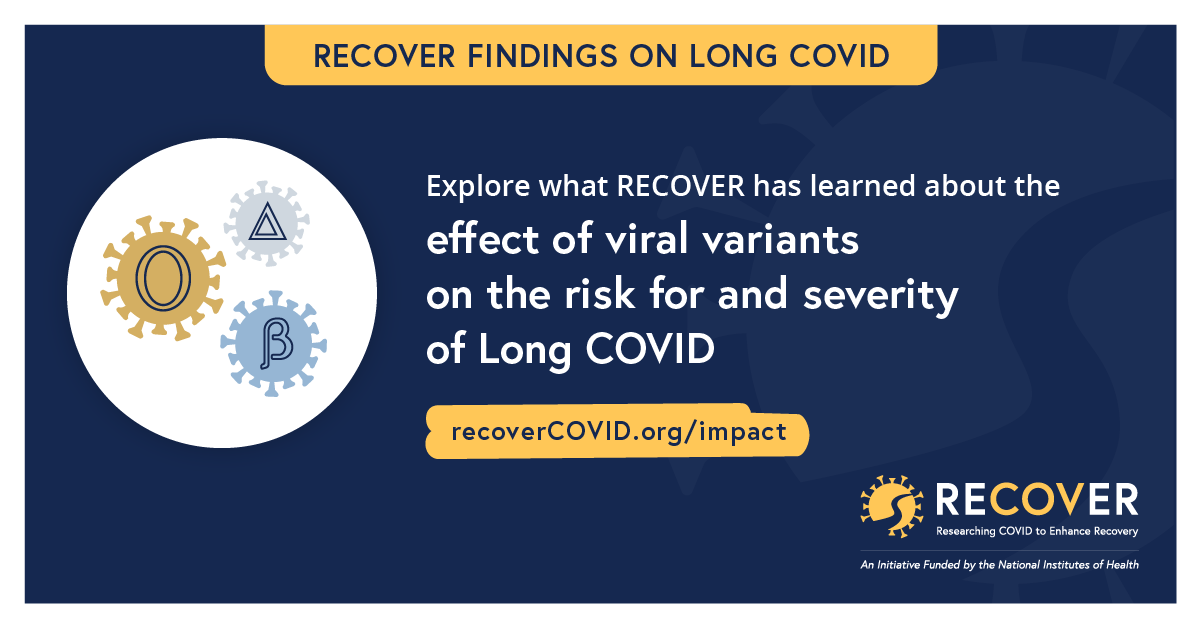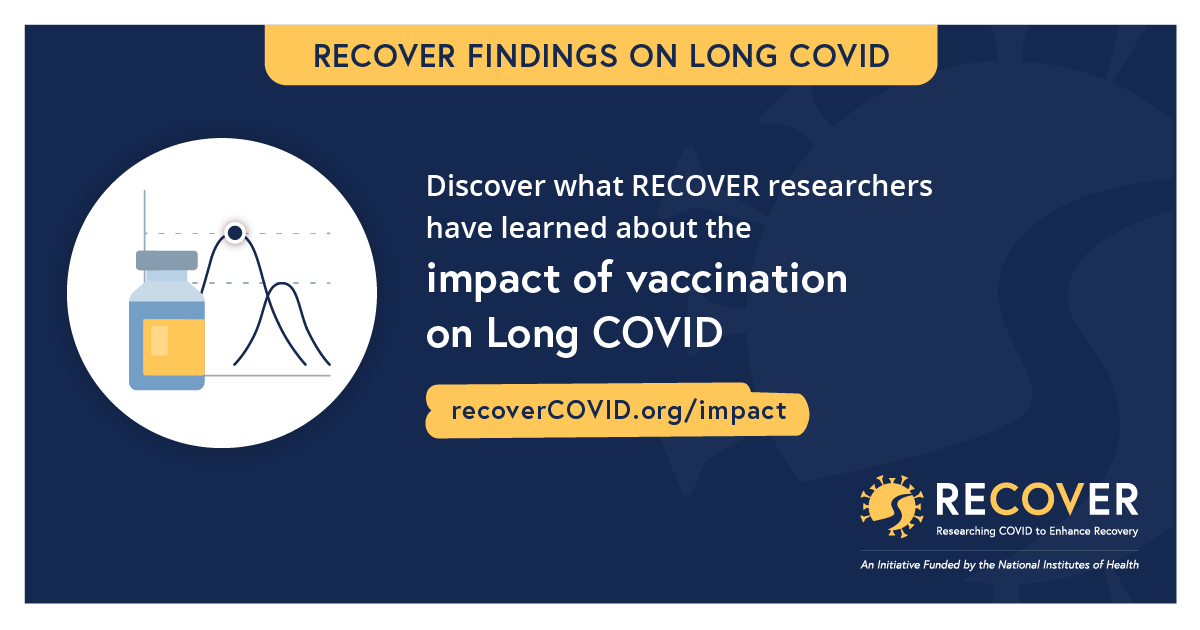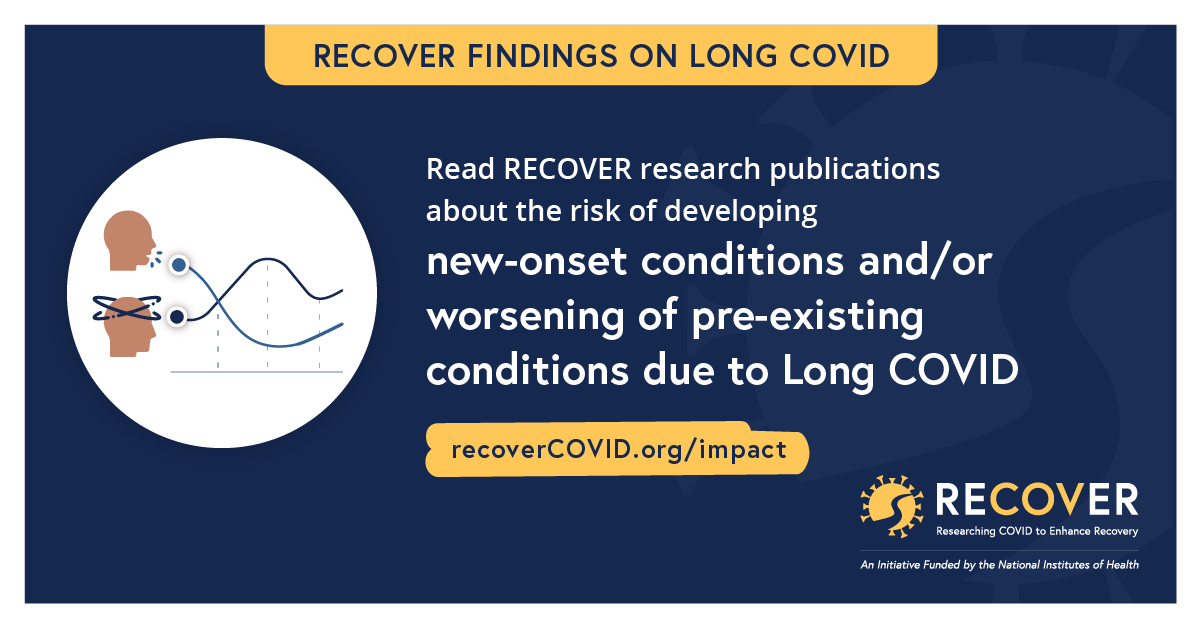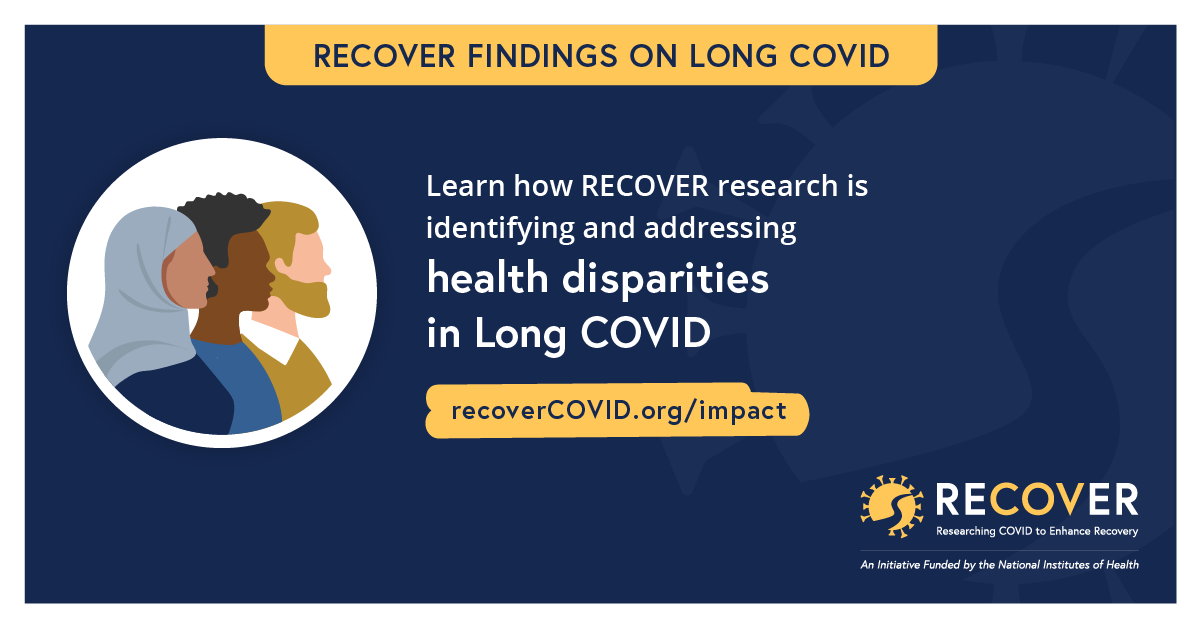Seeking diverse experiences of Long COVID

Researchers are partnering with patients and communities across the United States to learn more about the long-term effects of COVID-19.
Community Voices
Patients, caregivers, and community members are involved across all levels of the RECOVER Initiative, including serving on Steering Committees, Task Forces and Oversight Committees, and on Community Advisory Boards at RECOVER study sites.
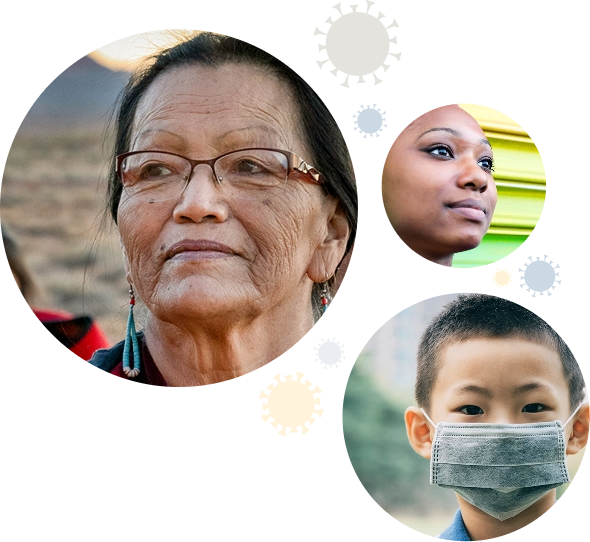
Guiding Principles for Patient and Community Engagement
Patients, caregivers, community members, RECOVER Representatives, and study participants come together to share ideas, concerns, hopes, and needs with RECOVER. These valuable insights inform major decisions about the RECOVER initiative. RECOVER uses the following principles to guide our continued community engagement:
Comprehensive
RECOVER study staff and participants include people of many races and ethnicities, ages, genders, jobs, education levels, incomes, U.S. locations, and health conditions. We think carefully and often about who may not already be involved in RECOVER and how we can respectfully engage and involve them.
Safety
We promote a culture of safety to ensure that patients, caregivers, community members, RECOVER Representatives, and study participants feel safe, welcomed, and engaged.
Transparency
We openly share information about the RECOVER study and its findings with participants and the public with the aim of fostering and maintaining trust.
Accessible to everyone
We share information about the RECOVER study in a way that people can easily find and understand it. We work to limit barriers to increase enrollment to studies.
Two-way communication
Communication between RECOVER staff and the public, including participants, is two-way so that both groups can send, receive, and share information. We ask participants and the public for their input and questions about the RECOVER study and use their feedback to improve the study. Participants and the public are able to send us their questions, and we listen carefully and answer them. These collaborative communications inform and contribute to the decision-making processes of the initiative.
Accountability
We hold RECOVER staff and leaders responsible for making sure RECOVER follows research standards and ethics, including to do no harm and to avoid re-traumatizing individuals and communities.
Collaboration
We work and search for opportunities for collaboration to get input and feedback through forums and discussions.
RECOVER’s Patient and Community Engagement Strategy
RECOVER’s Patient and Community Engagement Strategy (PDF, 327 KB) expands upon the guiding principles to describe how RECOVER engages with people affected by Long COVID. RECOVER seeks to include people from all communities and backgrounds.
Community Impact
Patients, caregivers, and community members continue to shape RECOVER research and communications.
Examples of community impact include:
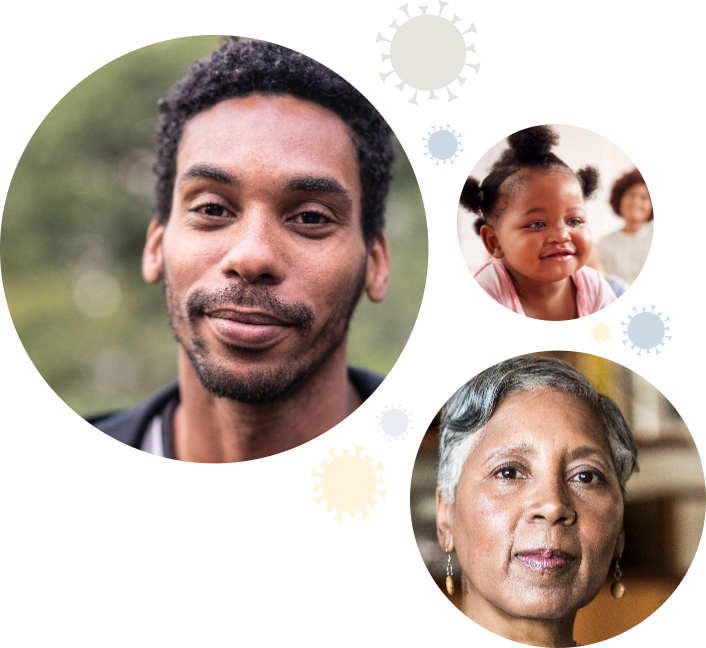
- Patients connected in online forums and on social media to share their concerns about and experiences with Long COVID. This helped lead to the creation of RECOVER.
- Over 100 patients gave their input at RECOVER listening sessions and through research. This input showed us the need to publicly recognize and share the message that “Long COVID is real.” We continue to listen first and test often as we develop communication materials.
- In response to community needs and to support communities hardest hit by COVID, the NIH funded the Community Engagement Alliance (CEAL). CEAL uses active, community-engaged research and outreach to find effective ways to share information with communities. CEAL continues to work alongside RECOVER to raise awareness of Long COVID.
- A workgroup of 26 RECOVER Representatives, now called the National Community Engagement Group (NCEG), helped give even more people the opportunity to volunteer for RECOVER studies. This group’s input led to RECOVER no longer requiring a PCR-confirmed COVID test for participation in a RECOVER study, and expanding the enrollment criteria for individuals with suspected, probable, or confirmed COVID infection from 24 months to 36 months.
- Based on community input, RECOVER created a standing task force to focus on the similarities between Long COVID and other conditions, like myalgic encephalomyelitis/chronic fatigue syndrome (ME/CFS), that can affect people who get a viral infection.
- Since RECOVER began, we’ve received thousands of direct inquiries, and more than 900 people have attended RECOVER patient experience discussions. We use your questions to inform our activities and communications, including on the FAQ page.
Your Voice
Long COVID is real. Many people are suffering, but not enough people know about Long COVID. There are multiple ways patients, caregivers, and community members can get involved.
Ways to Get Involved

- RECOVER Leadership
- Patient Portal
- RECOVER-Treating Long COVID (RECOVER-TLC) Therapeutic Submission Portal
- Social Media Outreach
- RECOVER Research Review (R3) Seminar Series
- RECOVER Newsletters
- Listening Sessions
- Partner Promotion
We want to reach and hear from more people impacted by Long COVID, including people who are not taking part in RECOVER studies. If you have any input you’d like to share, please use the form on our Contact Us page. If you have family, friends, or neighbors who want to know more about RECOVER, please share this website with them.
